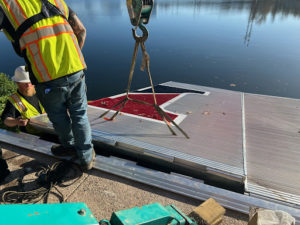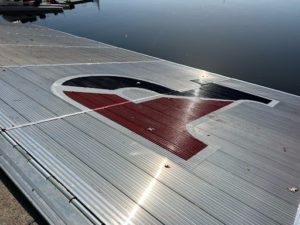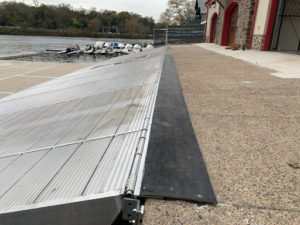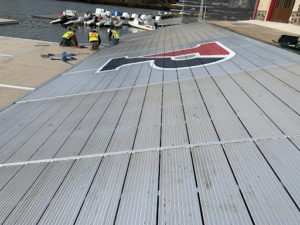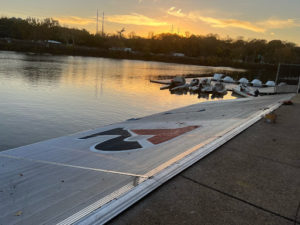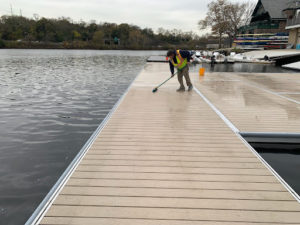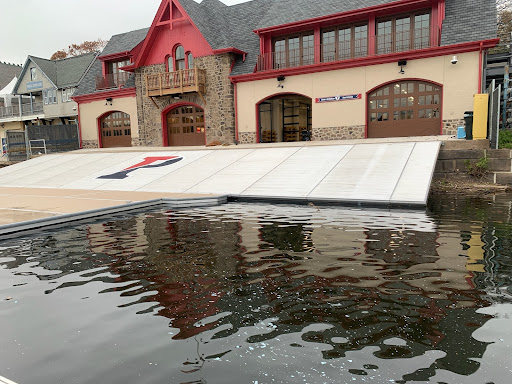
The University of Pennsylvania’s Rowing Center on the Schuylkill River recently completed a $13.5 million renovation to its historical boathouse, rowing docks, and gangway.
The original Maderia Shell House constructed in 1874 and located on Philadelphia’s prestigious Boathouse Row recently reopened as the Burk-Bergman Boathouse, honoring two former legendary Penn rowing coaches. The redesigned boathouse along the scenic stretch of boathouses along the Schuykill River is one of Philadelphia’s most historical and iconic landmarks. Penn’s boathouse is one of the oldest in the country and home to three of Penn’s varsity intercollegiate rowing programs; the men’s heavyweight, men’s lightweight, and women’s rowing teams.
The dated facility was in disrepair and unable to serve the anticipated growth and interest in Penn’s rowing programs. The boathouse required a complete renovation and its supporters envisioned the new facility as a top-notch training center that would help Penn recruit higher caliber student-athletes and allow for better use of the nearly 150-year-old building.
The improvements will move Penn to the top of Division I rowing programs in terms of facilities, boathouse amenities, rowing docks and gangways, indoor training equipment, boat storage, and equitable locker rooms for men and women. Coaches and teammates are hoping their upgrades will help them become nationally recognized and more competitive among the Division I rowing community.
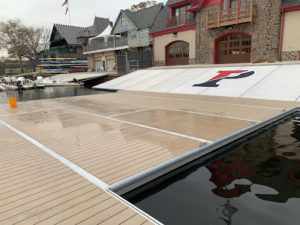
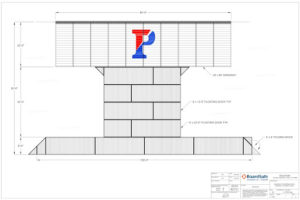
Ewing Cole was the design firm that led the project for the renovation of the boathouse while BoardSafe Docks provided the design, engineering, manufacturing, and installation of the new rowing docks and gangway.
The project restored the original stone structure and maintained the original chttps://boardsafedocks.com/haracter of the historical venue along Boathouse Row. The design completely renovated and modernized its interior. The updates included improvements to their meeting and locker rooms and greatly improved its training facilities for their rowers. Aesthetically, it boasts a soaring main entrance, an open lobby to display trophies and memorabilia, a contemporary lounge and meeting area, and a balcony that overlooks the river. The iconic structure maintains the original historical elements of the 1874 boathouse while offering modern design and conveniences that will wow their rowers and guests. The improved training facilities and workout areas now provide equal space for men and women athletes and an elevator that provides adaptive rowers and guests access to the second floor. The renovation project supported Penn’s mission, vision, and values for inclusive design and showcases the historical and grand structure.
Over 200 alumni and former rowers donated to the campaign demonstrating their support for the project and the sport of rowing, Penn’s teams, and the University. The Burk-Bergman facility and its amenities have become the envy of other rowing clubs and are expected to attract top-performing recruits.

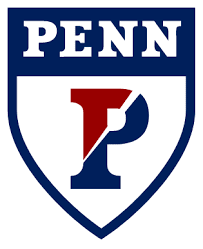
BoardSafe’s solution for water access and updates to Penn’s rowing docks and gangway included disposal of the existing wooden gangway and aging floating dock system. A new aluminum gangway and aluminum-welded floating dock were designed to fit the previous layout and setbacks. The aluminum products now showcased at the facility offer increased structural integrity and durability for their location on the river.
The new gangway measures 20 feet by 84 feet and is attached to the concrete bulkhead using the proprietary BoardSafe Bulkhead Mounting System. Because the concrete varied in elevation, a rubber transition strip was installed to provide a smooth transition from the concrete walkways leading onto the aluminum welded gangway.
The rowing docks are approximately 2000 sq feet with a freeboard of 6 inches. They are constructed using aluminum-welded frames with composite decking featuring the TimberStrong Fastening System. The fasteners are attached between boards, rather than on top, negating the possibility of screws popping out of the decking. Philadelphia winters and the current on the Schuylkill can be harsh, and the construction of their new docks will offer greater longevity and lower maintenance from the freezing and thawing that occurs along the river. Supporting the floating docks are non-polluting flotation made with plastic encapsulated foam.
The iconic “split P” logo the University of Pennsylvania is known for was added to the center of their gangway. Their new quality rowing docks system and gangway will add to the legacy Penn is creating.
For history buffs, you may learn more about the University of Pennsylvania’s history of rowing in this link, which is among one of the oldest collegiate boathouses in the country.
archives.upenn.edu/exhibits/penn-history/crew/boat-club/
BoardSafe Docks specializes in design consultation, engineering, and manufacturing of rowing centers, marinas, adaptive kayak launches, fishing piers, gangways, and pedestrian bridges. They will work with you to ensure your project is accessible to the widest range of users ensuring that the necessary accessible and adaptive features are not overlooked. As the industry leader, BoardSafe was honored to design and manufacture the gangway and rowing docks for this historical locale that has become the envy of other collegiate rowing centers.
Below are video links to other successful rowing center projects that make BoardSafe Docks the most experienced and trusted expert for collegiate rowing centers looking for the highest-performing rowing docks. Their product designs will help attract the highest caliber rowers.
Texas Rowing Center – the World Class Rowing Center Built by BoardSafe Docks
Temple University’s Rowing Center in Philadelphia
To learn more about BoardSafe Docks’s additional projects and capabilities, you can view our “About Us” video here:
BoardSafe Docks: Manufacturer of Marinas, Rowing Centers, Adaptive Launches, Gangways & Bridges
For more information about this project and others, or for consultation, visit us at boardsafedocks.com or call 610-899-0286.

